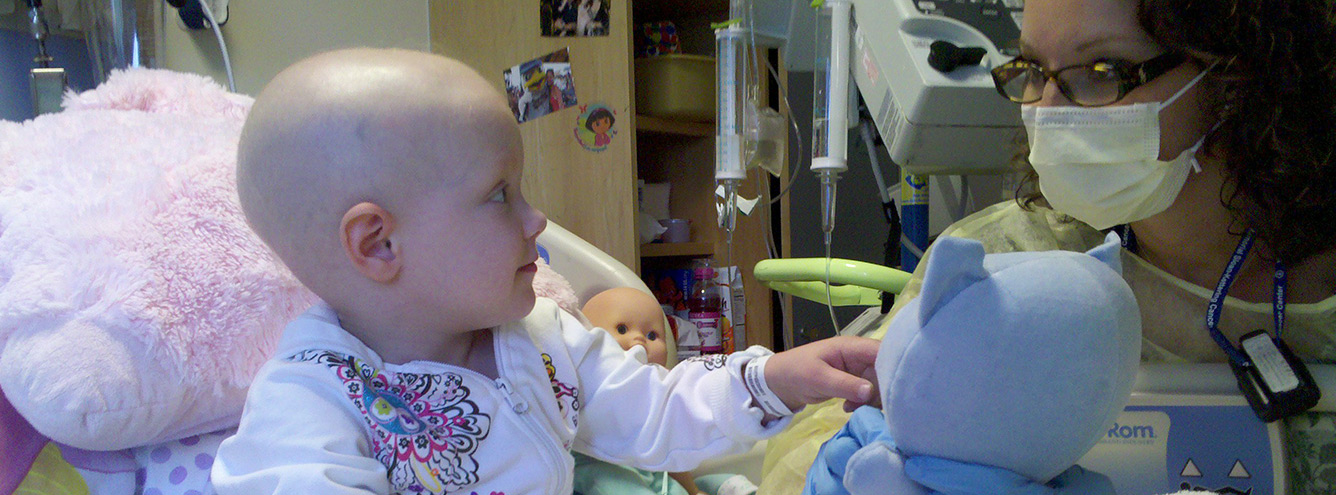Most children with retinoblastoma have an eye removed to save their life.
Preparing all children for this surgery is vital, for their complete wellbeing.
If your child is a young baby, you will not have to explain the surgery to him, but babies still need preparation for surgery. As he grows older, he will become curious about his different eye and will need age appropriate explanations to help him understand it and live well with it.
Your child will not be experiencing the vast and bewildering array of emotions that you are going through at the moment. He will probably be satisfied with a simple, honest explanation in familiar language he can understand. Give more information to older children as their curiosity and comprehension allow.
For example “your eye is sick/has a boo boo inside and the doctor needs to remove it to make you better. When he has removed your eye, you won’t be able to see from it any more, but you will get a new pretend eye that will look just like your other eye”.
Be Honest
Honesty is vital. Not telling the truth about enucleation is likely to cause your child more distress, create damaging mistrust and shame. If you are unsure of how to explain what is happening, or it is too difficult for you to discuss with your child, ask a nurse or child life specialist to help you.
Do not promise that the “boo boo” will be gone after surgery. If a child thinks the surgery will make him all better, he may not respond well if treatment is needed later. If your child asks questions and you don’t know the answer, it is perfectly acceptable to say “I don’t know”.
Books
Several books have been written specifically for young children facing the loss of an eye. Reading one of these with your child(ren) is good preparation for surgery. You could suggest pre-school / school teachers use one of these books in class to help peers understand your child’s experience.
Our Child Life Specialist, Morgan Livingstone, has created several picture books with the help of her medical play dolls who have a removable eye, the team at Toronto’s Hospital for Sick Children, and Ocularist Matthew Milne.
Download Preparing for Enucleation Surgery as a PDF direct from our website.
Download My Prosthetic Eye as a PDF direct from our website.
Books produced by other organizations:
- The Extraordinary Eye (written by an Rb mom and teacher, available on Amazon)
- Tino’s Eye (Retinostop)
- My Fake Eye (Institute for Families)
- Joey’s Special Eye Eye Cancer Foundation
- My Pretend Eye UK National Artificial Eye Service
Together you and your child can write and create your own book with the simple facts of the process your child will undergo during the enucleation..
This can include real photos of the members of your medical team and family to help increase familiarity and comfort with the events and people involved.
Your Child’s Response
Children’s reactions to this information vary considerably. Some are curious about the process of getting a new eye, while others do not want to know anything beyond the basic explanation.
Children often absorb information without responding. They mull things over and may ask questions hours, days or weeks later. This is normal. Let your child know he can ask questions, as this will help ensure his concerns are not allowed to fester.
Meeting Others With Shared Experience
Introducing your child to others who have lost an eye may help reduce his anxiety. Your doctor may be able to connect you with other families in your area who have experienced enucleation. This will also be an opportunity for you to share your feelings with other empathetic parents.
Imaginary Play
Before and after the surgery, your child and other siblings may play with dolls or teddies who have poorly eyes or no eyes. Play is the learning medium of childhood, the way young children work through what they are experiencing and feeling.
Please understand this form of play is your child’s natural way of coming to terms with what is happening to him. Learn more about imaginary medical related play.


